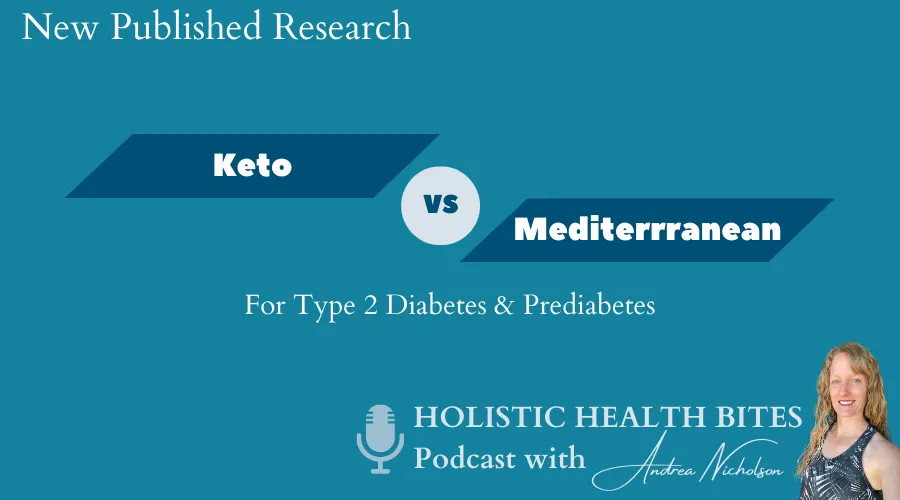
Digestion truly has to be the first priority in healing – even if you aren’t suffering from an overt digestive issue. Stick with me in this post and I’ll share with you why skin issues, fatigue, brain fog, hormone imbalances, infertility, blood sugar imbalances, mood disorders, chronic pain, and even weight loss resistance cannot be resolved until digestion is healed. Every chronic disease or symptom has a gut health component.
Digestion is the first healing priority
It’s likely that if you have already taken steps to improve your condition – maybe you drink more water (and less unhealthy beverages), maybe you exercise more (or differently), maybe you eat more vegetables (and less bread and pasta), and maybe you’ve tried several medications…and they either didn’t help at all, made you feel worse, or only provided temporary relief.
Healthy habits are important, but none of these are the first priority. The top priority of all needs to be proper digestion – for everyone.
Why heal digestion first?
We get all of the body’s necessary nutrients from our food – but only if we are digesting and absorbing that food properly. Without proper absorption of vitamins, fatty acids, amino acids, minerals, and fiber from the food we eat, we will be lacking the essential factors required to support pancreatic function and insulin production, and thus we can’t optimize blood sugar handling. If we aren’t absorbing minerals from our diet, we’re hundreds of enzyme reactions in the body are hampered. Proper hydration is absolutely necessary, it simply doesn’t override the importance of an optimally functioning digestive system.
Proper nutrient levels are needed for (not an all-inclusive list):
- Immune system function and reducing autoimmunity
- Breakdown of food
- Hormone synthesis, function, and detoxification
- Neurotransmitter synthesis, function, and reabsorption or breakdown
- Cognitive function, memory formation and recall
- Mood stabilization and regulation
- Cardiac, blood vessel and nerve functioning
- Muscle control and development, bone health, and structural development
- Blood sugar management
- Pain sensation and control
- Liver detoxification of environmental, food, and endogenous (body-made) toxins
- Respiratory function
- Vision, hearing and taste reception
The digestive process is a multifactorial process that requires adequate functioning of each step as they build on each other.
1) Is food being properly broken down?
Food is brought into the body through the mouth – so we first have to pay attention to habits around the act of eating. Is food being taken in slowly, chewed thoroughly, and not in excessive quantities? Has there been sufficient time since the last meal to ensure full digestion of previous foods before intake of additional foods?
Is the stomach providing adequate stomach acid to chemically break down the food? It is estimated that 90% of us are low stomach acid producers! Without this stomach acid denaturing proteins, breaking down complex carbohydrates, and fats, signals are not sent to the pancreas to release digestive enzymes needed to complete the breakdown process. Nutrients cannot be absorbed in the body unless they are fully broken down to their smallest components (glucose, amino acids, and fatty acids). The food also must be at a sufficiently low pH (acidic pH of 1.5-3) in order to open the valve to the small intestine. If the pH doesn’t reach this low level, the valve doesn’t open, leaving the food to sit and stew in the stomach for too long. This ultimately causes gas formation, belching and bloating, feelings of heaviness after eating, and can cause heartburn.
Low stomach acid and inadequate food breakdown are also a recipe for ulcers and bacterial overgrowth. Speaking of microbes, stomach acid is also a first line of defense to kill off any microbes that enter the mouth and make their way to the stomach. Inadequate stomach acid means these microbes survive and can move on to the intestinal tract to set up a new home. While we want good bacteria, we don’t want these opportunistic microbes or pathogens to set up shop!
Lastly, stress is at an all-time high in most of us. The digestive problem here is when you are in a state of stress (physical, emotional, or even perceived), your body is in a state of “fight or flight” – releasing extra glucose into the bloodstream and shutting down digestive functioning and any other unnecessary function during an emergency. You must be in a “rest and digest” state in order to properly digest foods. This makes perfect evolutionary sense – if you’re running from a predator, digesting food is not going to help you survive in the moment. While we aren’t generally running from predators anymore, the biological stress signals from work and life stress are the same! Proper digestion requires that we SLOW down, take some deep breaths, and eat in a calm and undistracted way. We should not be eating in our cars, while working, while arguing, or in any way on the go! Make your meal times peaceful and sacred again.
2) Do you have a pathogen?
Most people think parasites are only an issue in developing countries. This is not true. There are countless parasites that live in the water, foods supply, and soils in every country. And we have already talked about opportunistic bacteria that can enter our digestive system through our mouth. Sadly, most adults (and children) are living on a diet of highly processed, low nutrient, low fiber foods and have taken multiple rounds of antibiotics. All of this together leads to a dysfunctional intestinal terrain – the perfect setup for opportunistic bacteria. The Standard American Diet (SAD) involves overeating starch and sugar which also sets up the perfect conditions for yeast and fungi to set up a new home.
3) How healthy is your microbiome?
The microbiome is a common topic of conversation amongst health and wellness researchers and professionals. We now know that we need abundant beneficial microbes to keep our digestive system healthy. These beneficial microbes help in the absorption of B vitamins, vitamin K and some minerals. According to stool samples taken from tens of thousands of people, many of us are missing important strains of beneficial microbes, allowing for even more overgrowth of bad bacteria.
Think of your healthy microbiome like flowers in a beautiful garden and the unhealthy microbes like weeds. If you don’t take proper care, those weeds will take over and kill off the flowers – but if you do take great care, reducing weeds and promoting flower growth, you will have a flourishing garden filled with beauty.
If any component of your digestion is dysfunctional, you will benefit from the nutrients in your food. This causes mineral deficiencies, hormonal imbalances, cardiovascular problems, and poor detoxification.
Digestion is the first healing priority
If you start anywhere else – you will never truly get well. We constantly see clients who, by simply optimizing digestion, no longer have infertility, irregular menstruation, chronic pain, brain fog, fatigue, migraines, leg cramps, or anemia, just to name a few. Digestion is the end-all, be-all, healer of all – but it’s where we start with everyone because without it – nothing else will work!
The best, most efficient method to getting to the root cause is functional laboratory testing. The first test we recommend for most clients is a stool test to determine the state of the microbial balance, presence of any pathogens, digestive enzyme functioning, and gut-associated immune system function or inflammation presence. The second test is a comprehensive food sensitivity panel (blood test). This test will give a very detailed assessment of how your body reacts to 170 foods and substances. If you are consuming foods that your body doesn’t agree with, you create an environment for inflammation, bloating, bacterial overgrowth, pathogens, leaky gut, and many imbalances. Food sensitivities do not always cause overt symptoms, so testing is vital to know for sure which foods unique to you should be avoided.





















0 Comments